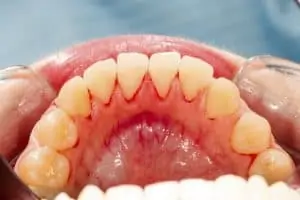
About the Study
In this study, researchers inspected the skeletons on five male macaques that had all been castrated. They compared the jaw bones and mandibles to those of macaques that had not been castrated.
They noticed some important results, some of which were noticed by a simple visual exam. All of the macaques that had gone through castration showed signs of advanced gum disease – more so than comparative males who had not been castrated.
About the Findings
These findings were surprising to the researchers, as they did not expect to see such undeniable evidence of the impact of testosterone on oral health. While there has been previous research about the effect of estrogen on craniofacial tissues, it was not expected that testosterone would play such an important role.
This finding raises the possibility that testosterone levels could be important in keeping craniofacial tissues healthy, especially during aging when testosterone and other hormones tend to decline.
Gum Disease is Higher in Men than Women
Now, researchers need to complete further studies to see if testosterone levels have anything to do with the fact that gum disease is more prevalent in men than women. According to the American Academy of Periodontology, about 56.4% of men have gum disease compared to 383.4% of women.
This may also be due to the fact that women tend to go to the dentist more often than women, so it is clear that further studies need to be done in order to get a better idea of how hormones relate to gum health.
Please contact us if you have and questions about gum disease.

